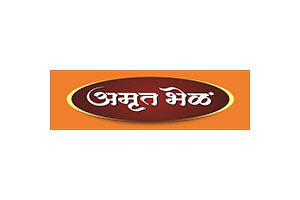Best Antitrust Litigation Lawyers in Thane
Share your needs with us, get contacted by law firms.
Free. Takes 2 min.
List of the best lawyers in Thane, India
About Antitrust Litigation Law in Thane, India
Antitrust litigation deals with legal disputes related to anti-competitive practices such as cartels, abuse of dominant position, and unfair trade restrictions. In Thane, as in the rest of India, these matters are governed primarily by the Competition Act, 2002. This law aims to promote fair competition, protect consumer interests, and ensure the freedom of trade in Indian markets. Organizations and individuals in Thane who face anti-competitive behavior or believe their business interests have been harmed by such practices may pursue antitrust litigation for remedies, including compensation or cessation of the unfair conduct.
Why You May Need a Lawyer
Antitrust litigation can be complex and involves specialized legal knowledge. You may need a lawyer in Thane for several reasons related to antitrust issues, such as:
- Receiving or responding to notices from the Competition Commission of India (CCI) regarding alleged anti-competitive practices
- Facing business losses due to cartelization or abuse of dominant position by market competitors
- Drafting and reviewing commercial agreements to ensure compliance with antitrust laws
- Initiating legal proceedings if your business suffers due to unfair trade practices
- Responding to investigations, raids, or other regulatory inquiries related to anti-competitive behavior
- Negotiating settlements or preparing defenses in antitrust cases
- Seeking compensation for damages caused by anti-competitive acts
Local Laws Overview
The primary legislation governing antitrust litigation in Thane is the Competition Act, 2002. The Act prohibits agreements that cause an appreciable adverse effect on competition, prevents abuse of dominant position, and monitors combinations (mergers or acquisitions) that might impact the market unfairly. Key local agencies include:
- The Competition Commission of India (CCI), which investigates and adjudicates antitrust matters
- The Competition Appellate Tribunal (COMPAT) for appeals against decisions of CCI (note: now merged with the National Company Law Appellate Tribunal)
- Local courts in Thane that may handle certain aspects of antitrust litigation
Frequently Asked Questions
What is antitrust litigation?
Antitrust litigation is the legal process of resolving disputes related to practices that restrict competition, such as price fixing, cartels, exclusionary agreements, and abuse of dominant market positions.
Who can file a complaint about anti-competitive practices in Thane?
Any person, consumer, business, or group affected by anti-competitive conduct can file a complaint with the Competition Commission of India. Legal entities and trade associations can also initiate complaints.
What authority investigates antitrust issues in Thane?
The Competition Commission of India (CCI) is the main authority responsible for investigating and adjudicating antitrust matters in Thane and across India.
What types of conduct are prohibited under Indian antitrust law?
Prohibited conduct includes agreements to fix prices, share markets, limit production, abuse of market dominance, and certain exclusive supply or distribution agreements that harm fair competition.
What penalties can be imposed for antitrust violations?
Penalties can range from cease-and-desist orders to hefty financial fines, compensation for affected parties, and in some cases, directions to change business practices or structures.
Can individuals or businesses seek compensation for losses due to anti-competitive acts?
Yes, victims of anti-competitive practices can claim compensation by filing a case before the appropriate judicial or quasi-judicial bodies after a finding of contravention by the CCI.
How long does an antitrust case take in Thane?
The duration varies depending on complexity, evidence, and the workload of the authorities. Cases may take several months to a few years to resolve.
Are mergers or acquisitions regulated under antitrust law?
Yes, combinations such as mergers and acquisitions are regulated to ensure they do not lead to adverse effects on competition. Certain thresholds require parties to notify the CCI for approval.
What should I do if my business receives a notice from CCI?
It is advisable to consult a qualified antitrust lawyer immediately, collect all relevant documentation, and prepare a timely and appropriate response.
Is legal representation mandatory in antitrust proceedings?
While it is not legally mandatory, having legal representation is highly recommended due to the technical and procedural complexities involved in antitrust matters.
Additional Resources
If you are seeking further information or support regarding antitrust litigation in Thane, the following resources may be helpful:
- Competition Commission of India (CCI) - National authority for competition law enforcement
- National Company Law Appellate Tribunal (NCLAT) - Handles appeals in competition matters
- Maharashtra State Consumer Disputes Redressal Commission - For consumer grievances related to anti-competitive practices
- Local Bar Associations in Thane - For recommendations on antitrust legal professionals
- Legal aid clinics and non-governmental organizations offering free or low-cost legal advice on competition law
Next Steps
If you believe you are affected by anti-competitive practices or require legal support regarding antitrust matters in Thane, consider the following steps:
- Gather all relevant documents such as contracts, correspondence, and evidence of alleged anti-competitive conduct
- Consult a qualified antitrust lawyer in Thane for a professional assessment of your case
- Seek initial legal advice to understand your rights, possible remedies, and the process involved
- Consider alternative dispute resolution methods such as mediation if appropriate
- If advised, proceed with filing a complaint or response with the Competition Commission of India or the appropriate legal forum
Lawzana helps you find the best lawyers and law firms in Thane through a curated and pre-screened list of qualified legal professionals. Our platform offers rankings and detailed profiles of attorneys and law firms, allowing you to compare based on practice areas, including Antitrust Litigation, experience, and client feedback.
Each profile includes a description of the firm's areas of practice, client reviews, team members and partners, year of establishment, spoken languages, office locations, contact information, social media presence, and any published articles or resources. Most firms on our platform speak English and are experienced in both local and international legal matters.
Get a quote from top-rated law firms in Thane, India — quickly, securely, and without unnecessary hassle.
Disclaimer:
The information provided on this page is for general informational purposes only and does not constitute legal advice. While we strive to ensure the accuracy and relevance of the content, legal information may change over time, and interpretations of the law can vary. You should always consult with a qualified legal professional for advice specific to your situation.
We disclaim all liability for actions taken or not taken based on the content of this page. If you believe any information is incorrect or outdated, please contact us, and we will review and update it where appropriate.










